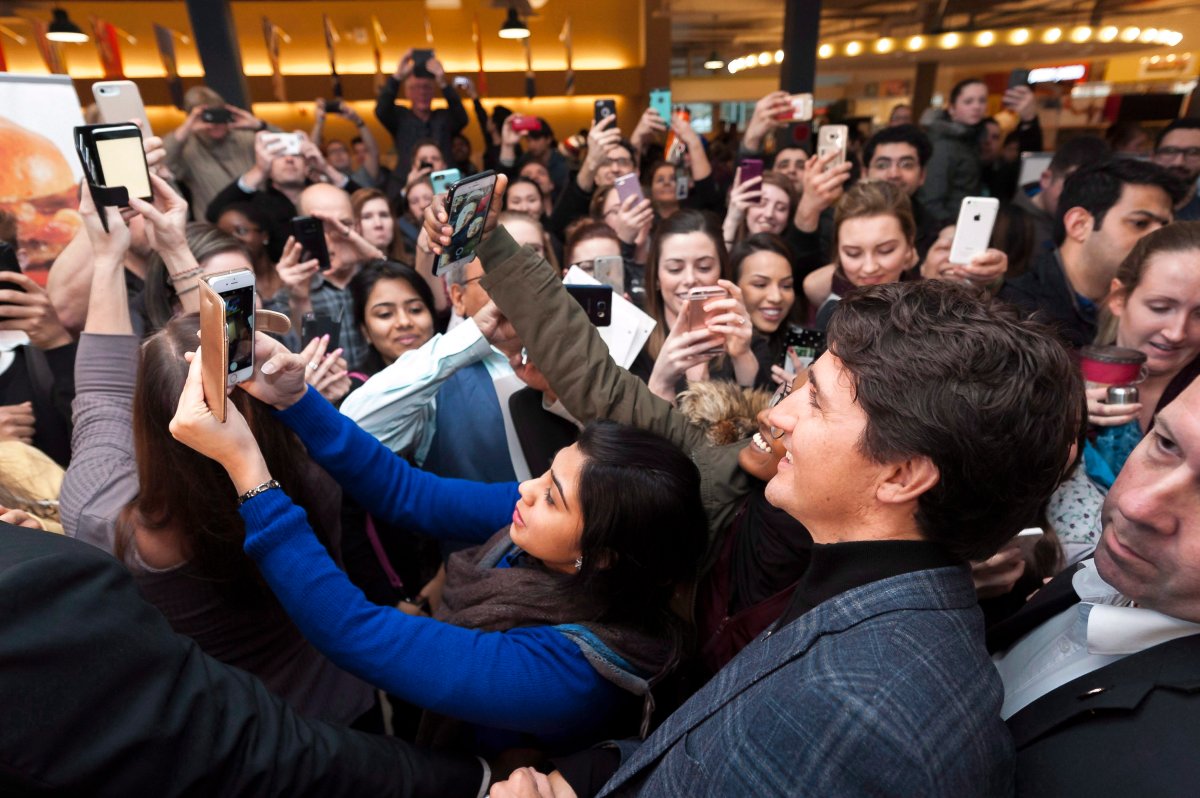Last week’s Global News/Ipsos poll showed that the Federal Liberals have fallen behind the Conservatives in popular vote (33 per cent vs. 38 per cent), meaning that if an election were happening today, the Conservatives would win and Andrew Scheer would become Canada’s prime minister.

It wasn’t that long ago that Prime Minister Justin Trudeau was seen to be ushering in a new era of politics. He was widely touted as having rejuvenated youth interest and participation in politics by promising a different tone, greater transparency, and a host of new youth friendly policies. But today, even among Millennials, the Liberals (31 per cent) and Conservatives (33 per cent) are statistically tied and the NDP (25 per cent) is close behind.
But Trudeau’s perceived advantage wasn’t just about appealing to youth. He also seemed to have cornered the social media market, and very much looked like he would be the first Canadian political leader to break free from the Laurentian Elites and establish his base among the growing number of Selfie Elites.
On the surface, Trudeau’s natural ability to connect with people in town halls, in public spaces and in social media allowed him to create an advantage over his peers. And if Twitter followers mean something, then his four million followers (compared to 133,000 for the NDP’s Jagmeet Singh and 62,000 for Conservative Andrew Scheer) should allow him to directly reach this highly engaged, influential and younger generation of voters for many years to come.
- ‘Shock and disbelief’ after Manitoba school trustee’s Indigenous comments
- Canadian man dies during Texas Ironman event. His widow wants answers as to why
- Several baby products have been recalled by Health Canada. Here’s the list
- ‘Sciatica was gone’: hospital performs robot-assisted spinal surgery in Canadian first
But something unexpected may be happening.
First, the number of Canadians engaging in political and social issues through social media is not growing very fast. Since 2013, the percentage of Canadians who say they are active (they author, post, share and comment on political and social issues) has grown very slowly, from 33 per cent to 36 per cent. Of note, a 23-country study by Ipsos shows that 45 per cent of citizens are actively engaged and Canada also trails the U.S. (41 per cent).
Second, the Laurentian Elite may well be taking the place of the Selfie Elite online. Since 2013, the percentage of Millennials actively engaged in social/political issues has declined to 44 per cent from 49 per cent, while the percentage of active Baby Boomers has jumped to 31 per cent from 21 per cent.

WATCH ABOVE: Was Justin Trudeau’s India trip as disastrous as it was made out to be?
Despite this shift, Trudeau still has a massive lead in Twitter followers over his nearest political rival — but number of followers doesn’t translate into intended votes. In fact, it appears the politically engaged social media community hold similar views to the rest of Canada. Among those who say they are “active” in social media on political and social issues, the Conservatives have an even bigger lead with intent to vote for the Conservatives at 38 per cent, leading the Liberals (31 per cent) and the NDP (20 per cent).
Those active in social media today are definitely influential. They follow and engage directly with journalists, academics, community leaders and politicians. They help shape the public narrative. Ignoring the social media space isn’t something any politician would be advised to do. However, the space is changing and evolving and a large number of followers may offer a politician a greater audience reach, but does not necessarily equal greater influence and cannot be inferred to mean greater support.
A week is a long time in politics, and a lot can happen to change intentions between now and the 2019 election. It is a given social media will play a role in the 2019 election, but given the changing composition in the online community, it is too early to tell if anyone really has an advantage.
Mike Colledge is president of Ipsos Public Affairs Canada.



Comments